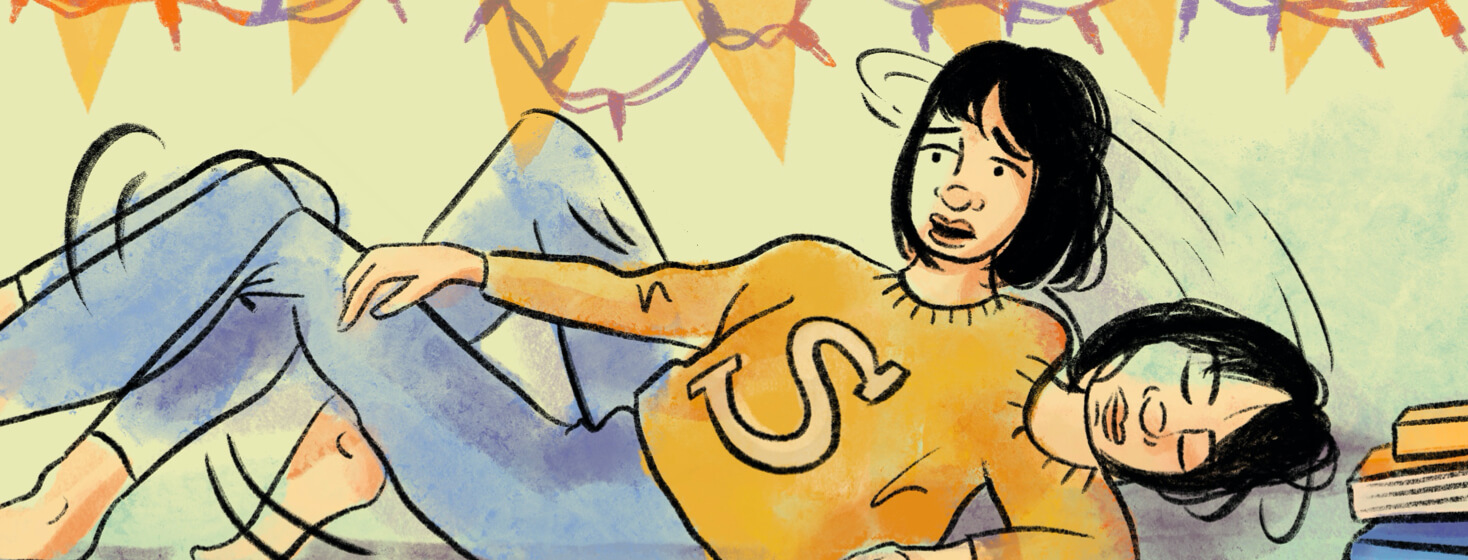My Diagnosis
The Seattle Rock ’n Roll Marathon led to my epilepsy diagnosis in 2010, but the road to truly understanding my seizures stretched thousands of miles further than the 26.2 miles I ran that day.
My first tonic-clonic seizure
My first seizure struck my junior year of college at the University of Minnesota in 2005, and came as a big surprise to everyone because I was a seemingly healthy cross country athlete, with zero health issues in the past. After one more tonic-clonic a few weeks later, my brain seemed to have cooled off.
My roommate noticed a few brief episodes of confusion that year but said I was back to normal our senior year. I brushed those episodes off and moved on with my life to Grand Island, Nebraska for my first job as a TV news reporter.
But in late 2009, I woke up on the floor one morning, and dread filled my chest. Did I have a seizure? There were no injuries.
And then more seizure activity
Things were smooth sailing again until I moved to Eugene, Oregon for my next reporting job a few months later. My mom noticed strange behavior in the car ride, and coworkers later noticed me spacing out during conversations, but none of us knew those could possibly be seizures.
Then, I traveled to Seattle for the marathon, and was excited after breaking three hours in the race. But my brain made me pay for it that night.
A seizure erupted while I was cutting vegetables, and I woke up on the cold floor, panicked to find a huge gash on my arm, a black eye, and plenty of bruises. The site scared both my coworkers and me, so the following Monday, I found a neurologist.
My epilepsy diagnosis
My doctor listened closely to all of my symptoms, then told me I likely had temporal lobe epilepsy, and occasionally had secondary generalization seizures.
My spirits sank. Epilepsy? Me? All the strange symptoms made sense, but why now? I was only 25 years old.
An EEG didn’t show anything concerning, and my first anticonvulsant made me really moody, so I reduced my dose then stopped it for a bit. The seizures got worse, no surprise, but things improved once I got into a therapeutic range.
Treating epilepsy can be a bumpy road
Eventually, though, the med stopped controlling seizures, something that’s utterly frustrating for so many of us. By that point, it was time for my next career move.
My mom discovered there were epilepsy centers with specialists to treat seizures, news that gave us both renewed hope. As luck would have it, Grand Rapids, Michigan had both a reporting job open as well as 2 level 4 epilepsy centers. But the first doctor available wouldn't be for 6 months.
After my first appointment, the doctor scheduled me for 24/7 video EEG testing at the epilepsy monitoring unit (EMU) at Butterworth Hospital in Michigan. I had to wait another 5 months, but the timing couldn’t have been better.
My video EEG at the EMU
The first day, nurses hooked up the EEG as well as my heart to a telemetry to watch for any potential cardiac issues. My doctor reduced my medication, so I settled in, waiting in nervous anticipation for an aura. By 12:30 p.m. it was time for lunch.
What happened next I have no memory of, but the video shows my eyes close and my body go completely still. My heart paused for 7 seconds. Five hours later, it paused for 13 seconds. My head dropped and I collapsed on my side. The EEG recording didn’t show a single spike. I had fainted.
Doctors wheeled me over to the cardiology floor and brought the EEG along. A cardiologist inserted a temporary pacemaker and found that my heart was beating too slowly (32 bpm) and occasionally taking breaks.
Another diangnosis...?
The diagnosis was sick sinus syndrome, which is essentially a sick heart. A permanent pacemaker would be placed to prevent any more pauses. Meanwhile, the EEG didn’t show any definitive seizure activity.
My head swirled with confusion. Were some of my seizures all along actually seizures? I thought back to the blackouts at home. Usually, I had an aura, but not always.
My hopes were high when the doctor stopped by to check on me. He shook his head and smiled. "I think you still do have epilepsy." My spirits sank.
But what type of seizures was I having?
I went to the hospital for one problem and walked out with two. But how long could my heart have held up the daily cycle of pausing and restarting? Going to the hospital for seizures had possibly saved my life.
Now, the waiting game began. Would I blackout anymore? The answer would determine what type of seizures I was truly having...

Join the conversation